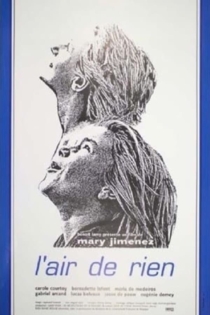
Mary Jiménez
2021Du verbe aimer
Mary Jimenez Freeman-Morris, Mary Jiménez
The filmmaker goes back to her childhood, to the roots of the tragedy, to her desperate efforts to be accepted by her mother, to her permanent feeling of failure. Du verbe aimer A remarkable autobiographical account, constructed like a very inventively written essay. (Belgian Cinematek)
Spelling Love

Con el nombre de Tania
Mary Jimenez Freeman-Morris, Mary Jiménez
Tanit Lidia Coquiche Cenepo, Ismael Vasquez Colchado
The Amazon flows lazily through the goldmine-gashed landscape of northern Peru. Using real eyewitness accounts, directors Bénédicte Liénard and Mary Jiménez tell the story of a young woman who winds up in the clutches of forced prostitution when her initially hopeful attempt to escape the constrictions of her village goes wrong. Step by step, she is robbed of her moral and physical integrity. The film reconstitutes a space of dignity and returns voice and identity to a fate formally made nameless. With its powerful imagery, the girl’s traumatic odyssey embodies the destruction of life in a capitalist world in connection with horrific natural devastation.
By the Name of Tania
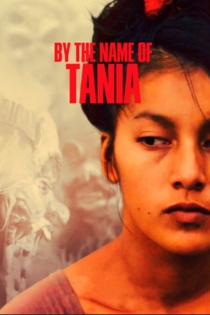
Le chant des hommes
Mary Jimenez Freeman-Morris, Mary Jiménez
Assaad Bouab, Sam Louwyck
A handful of migrants without papers decide to start a hunger strike. Day by day, overcoming the violence that they inflict upon themselves, they discover the greatness of their true cause. From this realisation they learn to affirm their common humanity.
Rising Voices
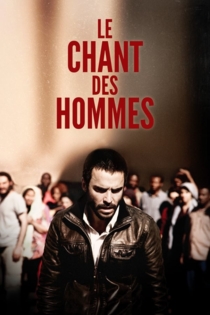
Sobre las brasas
Mary Jimenez Freeman-Morris, Mary Jiménez
On the banks of the Ucayali river, in the Peruvian rainforest, three generations of the same family struggle to survive through their handmade production of coal. After an accident that burned her feet, the grandmother leaves the family, with the hope of dying somewhere else, far away from the coal. Left alone with her juvenile son, Nancy keeps on struggling. Will she be able to hold her family together?
Glowing Embers
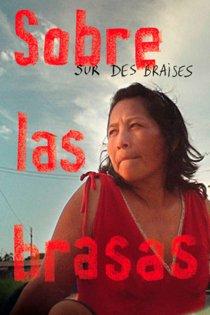
Call It the Burning
Mary Jimenez Freeman-Morris, Mary Jiménez
Off the Tunisian coast, a medical examiner studies the body of a young shipwrecked man. She is looking for the truth. Who was he ? What did he see? And what if he could speak? To her questions, the chorus of grieving mothers will give answers.They are memories. They talk about their sons who involve their dreams. They talk about the last instants, the desolation which pushes to go to sea and ask for justice ! In the same night, coming from the same village, there are nine kids who attempted the deadly crossing. Only a survivor could tell the story of this shipwreck. The film tries to be the crossroad of potential spaces and times, emotions and conventions that come from different horizons but keeps on running into each other.
Call It the Burning

Face Deal
Mary Jimenez Freeman-Morris, Mary Jiménez
The telephone was invented to connect people on a long distance. Today the telephone is mostly used to connect people who are already close. Our cell phones scan the direct environment to connect wireless. We call home when we’re nearly there. We have apps that show us where we are and apps that show us where our friends are. Distance is no longer needed. On the contrary: the closer we get, the smarter the phone. A telephone is no longer only used to call. It is, among many other things, a recording device for sound and image. The most iconic image of our times comes from the cell phone: the selfie. To make a selfie, you need a distance: arm length. Closer than that, your face doesn’t fit the screen, the image gets blurred, your self becomes unrecognizable. In her latest film, Mary Jimenez touches the limits of that distance.
Face Deal

Loco Lucho
Mary Jimenez Freeman-Morris, Mary Jiménez
Mary returns to Perú and her family with her previous film as a gift to her father, Lucho Jimenez, an eighty year old man with a lot of vitality. She proposes a caravan trip into his past, taking him to places where they spent their lives together, asking questions he never asked about his history, his family's history and his mother's death. During the filming of the movie, Mary learns that her father has a new engagement to a woman much younger than him and that he is about to adopt his new wife's child who was given to another family.
Loco Lucho
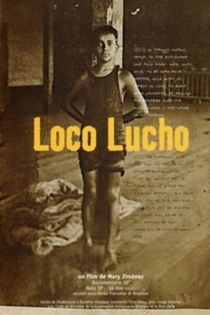
Heros sans visage
Mary Jimenez Freeman-Morris, Mary Jiménez
Brussels, Béguinage church. Migrants organize a hunger strike to obtain papers. A man dies. Tunisia, Libya. A border camp of Choucha refugees tell the horror of crossing the Sahara to the north. Liège. In a refugee center, a man narrates his Mediterranean crossing in a chamber of air. Three moments of a battle for survival.
Faceless Heroes

